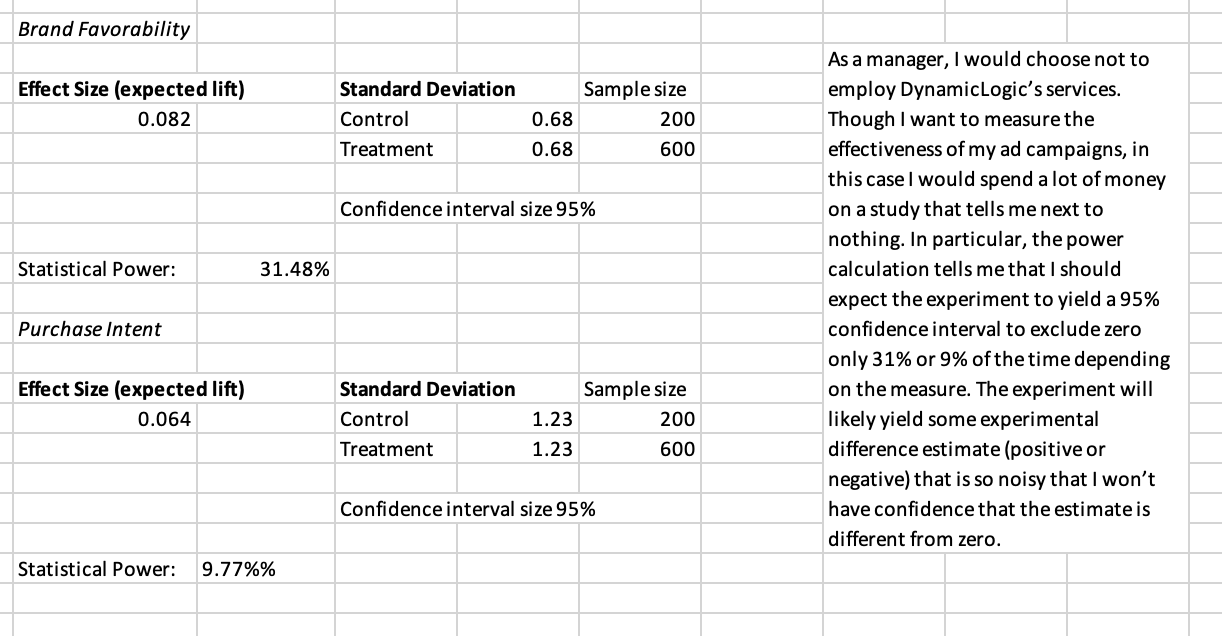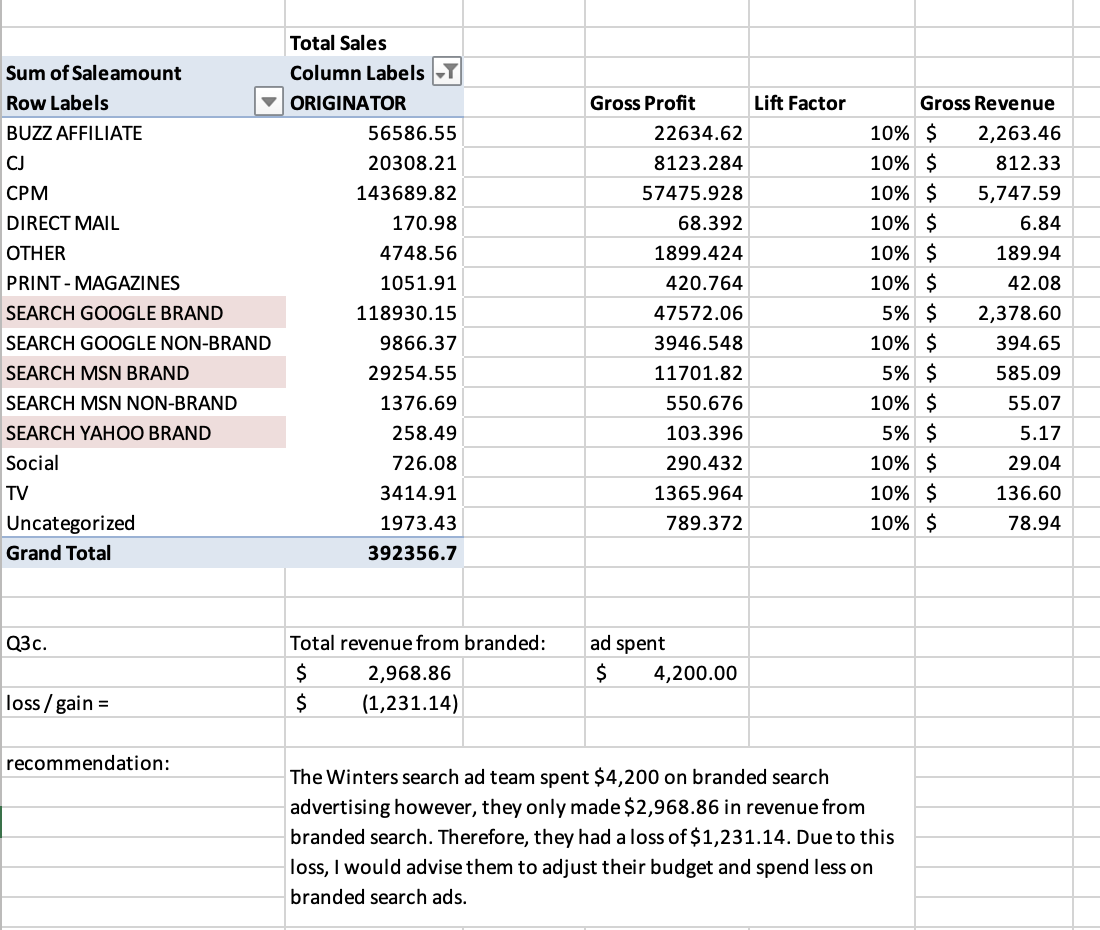In my digital marketing course, I gained hands-on experience designing and analyzing experiments, evaluating advertising effectiveness, and applying data-driven insights to marketing strategy.
Analyzed the effectiveness of a retailer’s ad campaign using experimental data.
What I did: Verified randomization, computed Intention-to-Treat (ITT) and Treatment-on-Treated (TOT) estimates, compared control vs. treatment groups, and evaluated the total effect on sales.
What I learned: Gained hands-on experience in experimental design, interpreting statistical outputs, and making data-driven recommendations for ad budget allocation.
Planned a larger ad experiment and evaluated statistical power for different treatment-control allocations and budget levels.
What I did: Calculated effect sizes, tested experimental designs, assessed budget allocation per user, and examined the feasibility of measuring incremental sales from ads.
What I learned: Developed skills in power analysis, optimizing experimental design, and understanding trade-offs between sample size, budget, and ad effectiveness.
Analyzed how different advertising channels contributed to orders using first-touch, last-touch, and linear attribution models.
What I did: Computed order counts, revenue, and shares of credit by channel; created visualizations; examined new vs. returning customer behavior; assessed incremental revenue and lift.
What I learned: Learned to evaluate multi-touch attribution, interpret marketing channel performance, and translate data into strategic budget recommendations.
Analyzed Twitter mentions and replies to assess customer care performance.
What I did: Measured daily engagement, sentiment, response rates, and response times; conducted text analysis; ran regression models to predict response likelihood; evaluated employee performance in social care.
What I learned: Gained experience in social media analytics, text mining, sentiment analysis, and using quantitative metrics to improve customer engagement strategies.








